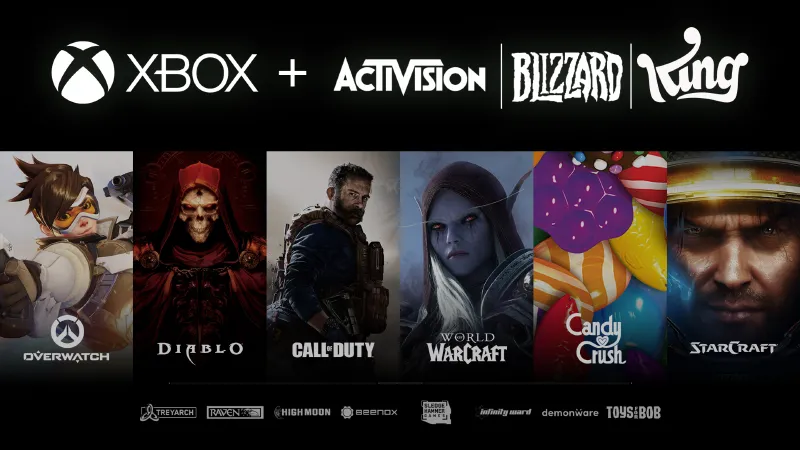
The Federal Trade Commission is looking to block Microsoft’s pending $69 billion acquisition of Activision Blizzard.
According to a press release, the Commission, whose purpose is to protect consumers by promoting fair market competition, voted 3-1 on issuing a formal antitrust complaint. It cites Microsoft’s record of using previous acquisitions to “suppress competition from rival consoles" and points to the publisher's purchase of ZeniMax as an example, stating:
“Microsoft decided to make several of Bethesda's titles including Starfield and Redfall Microsoft exclusives despite assurances it had given to European antitrust authorities that it had no incentive to withhold games from rival consoles.”
The FTC adds that Activision is one of the few major third-party publishers left that offers several best-selling franchises on multiple platforms. It claims that if Microsoft’s acquisition is successful, it would have “the means and motive to harm competition”. The FTC lists hypothetical examples including Micrsoft reducing the quality of non-Xbox versions of Activision games or services, withholding content from other platforms, and manipulating pricing in an anti-consumer manner.
 Overwatch 2
Overwatch 2
“Microsoft has already shown that it can and will withhold content from its gaming rivals,” said Holly Vedova, Director of the FTC’s Bureau of Competition. “Today we seek to stop Microsoft from gaining control over a leading independent game studio and using it to harm competition in multiple dynamic and fast-growing gaming markets.”
So far, the Activision acquisition has been approved (with no regulatory concessions) by international government commerce bodies such as Brazil, Saudi Arabia, and Serbia. It’s still under review for antitrust concerns by several international governments, most notably the European Commission.
Yesterday, Microsoft announced it had entered a 10-year commitment with Nintendo to bring Call of Duty to its platforms. It also stated it plans to keep the series on Steam and has repeatedly declared its willingness to keep Call of Duty on PlayStation for the foreseeable future. Of course, all of that hinges on whether or not the deal passes all of its regulatory checks. Sony has been one of the most vocal opponents of the acquisition, claiming such consolidation to be anti-competitive and harmful to its brand.
Hope to see you in Next Article Soon!

No comments:
Post a Comment